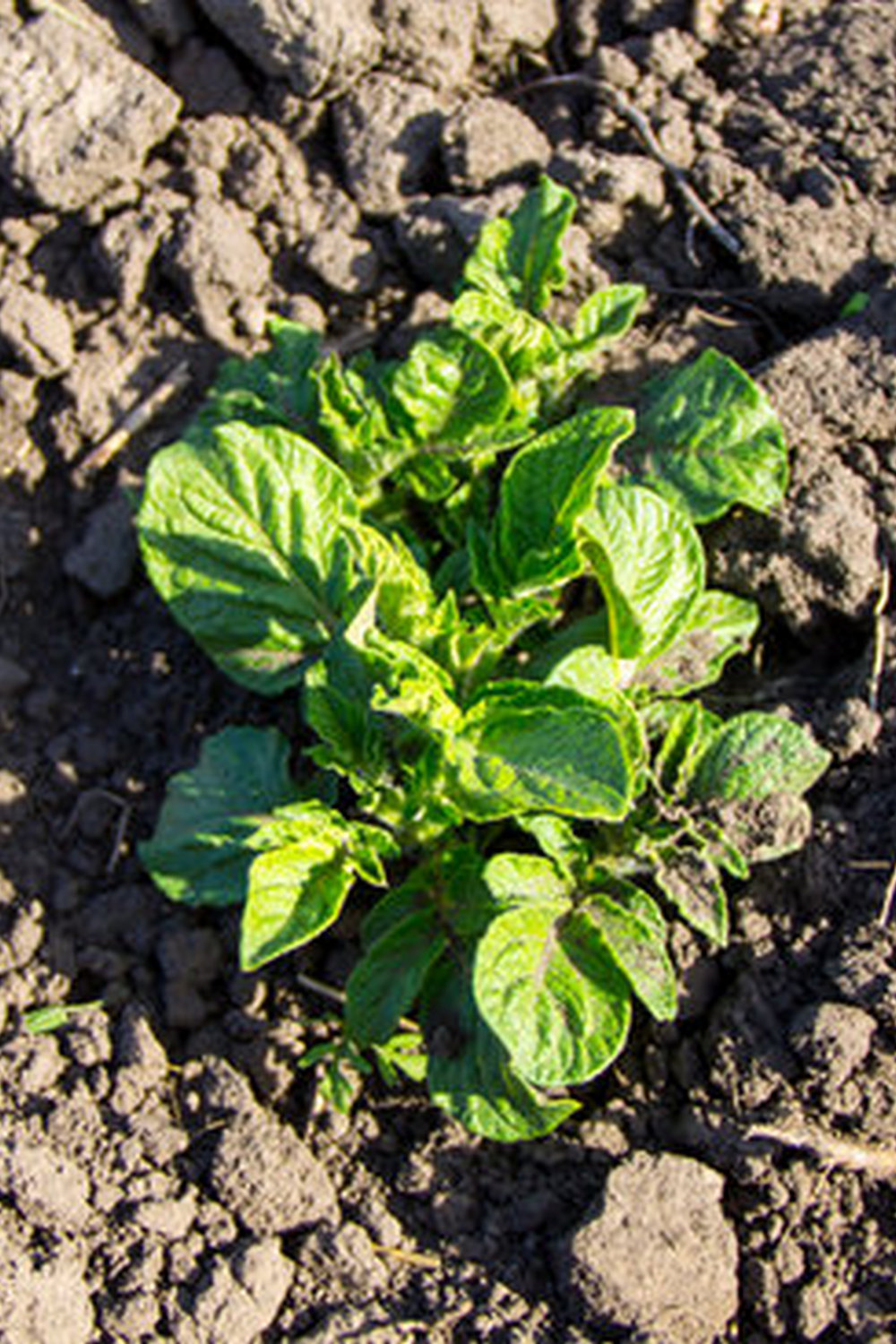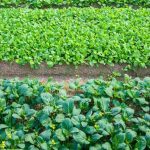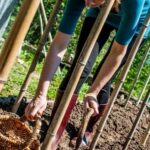Embarking on the journey of vegetable gardening in Florida for beginners can be an exciting and rewarding experience. With the sunshine state’s unique climate and growing conditions, there are plenty of opportunities to grow a variety of delicious vegetables right in your backyard. Whether you’re a seasoned gardener looking to expand your knowledge or a newcomer with a green thumb, this guide will provide you with valuable information to help you kickstart your vegetable gardening endeavors.
Florida’s warm temperatures and ample sunshine make it an ideal environment for cultivating a wide range of vegetables. From juicy tomatoes to crunchy bell peppers, there is no shortage of options when it comes to selecting what to grow in your garden. By choosing the right vegetables that thrive in Florida’s climate, you can set yourself up for a successful harvest and tasty meals straight from your own backyard.
However, while Florida offers many advantages for vegetable gardening, it also presents its fair share of challenges. From intense heat and humidity to pesky pests and diseases, there are factors that every beginner gardener should be aware of. Understanding these unique challenges and how to navigate them will be key to ensuring the health and vibrancy of your garden throughout the growing season.
Choosing the Right Vegetables to Grow in Florida’s Climate
When embarking on vegetable gardening in Florida as a beginner, one of the most important steps is to choose the right vegetables to grow in the state’s unique climate. Florida’s warm and humid environment provides a great growing season for a variety of vegetables, but it’s essential to select plants that will thrive in these conditions.
One of the key considerations when choosing what to plant is ensuring that the vegetables can withstand Florida’s hot summers and occasional tropical storms.
Warm-Season Vegetables
In Florida, warm-season vegetables are ideal for planting during the spring and summer months when temperatures are consistently high. These include popular choices like tomatoes, peppers, cucumbers, squash, beans, and eggplants. These vegetables love the warmth and sunlight that Florida’s climate provides, making them relatively easy to grow for beginners.
Cool-Season Vegetables
While Florida is known for its warm weather, there are also opportunities to grow cool-season vegetables during the fall and winter months. Options such as lettuce, spinach, carrots, broccoli, cauliflower, and kale can thrive in Florida’s milder temperatures during these seasons. It’s important to plan your garden accordingly and take advantage of these cooler months to diversify your vegetable crop throughout the year.
Native Plants
Another excellent option for beginner vegetable gardeners in Florida is to consider planting native plants that are well-adapted to the state’s climate and soil conditions. Popular native choices include Seminole pumpkin, Everglades tomato, Roselle (Florida cranberry), and Seminole squash.
These plants have evolved to thrive in Florida’s environment with less maintenance than some non-native varieties. By selecting native plants for your garden, you can support local biodiversity while enjoying a successful harvest tailored to Florida’s conditions.
Understanding the Unique Challenges of Vegetable Gardening in Florida
Florida’s unique climate poses both opportunities and challenges for beginner vegetable gardeners. The Sunshine State’s warm temperatures and ample sunshine provide an ideal setting for growing a variety of vegetables throughout the year. However, the high humidity, intense sunlight, and diverse range of pests can make cultivating a successful garden a bit more challenging.
Dealing With High Humidity
One of the main challenges facing vegetable gardeners in Florida is the state’s high humidity levels. Excessive moisture in the air can lead to issues such as fungal diseases, rot, and poor plant growth. To combat this challenge, it’s essential to choose vegetable varieties that are well-suited to humid conditions. Opt for plants that have good air circulation around them to reduce moisture buildup and prevent mold and mildew from developing.
Managing Intense Sunlight
Florida’s abundant sunlight can be both a blessing and a curse for vegetable gardens. While most vegetables require plenty of sun to thrive, excessive heat can also damage tender plants and cause them to wilt. To protect your veggies from scorching sun rays, consider using shade cloth or planting taller crops that can provide some relief to more delicate plants. Regular watering during dry spells is crucial to help your vegetables withstand the intense Florida sun.
Selecting Pest-Resistant Varieties
Florida is home to a wide range of pests that can wreak havoc on your vegetable garden if left unchecked. From aphids and whiteflies to caterpillars and nematodes, there are numerous insects waiting to feast on your hard-earned produce. To combat these critters, opt for pest-resistant vegetable varieties whenever possible.
Additionally, practicing crop rotation, companion planting, and maintaining good garden hygiene can help deter pests from taking up residence in your garden. Stay vigilant and inspect your plants regularly for any signs of infestation so you can nip pest problems in the bud before they get out of control.
Preparing the Soil and Creating the Ideal Environment for Your Garden
When starting a vegetable garden in Florida as a beginner, one of the most crucial steps is preparing the soil and creating an optimal environment for your plants to thrive. Here are some tips to help you get started:
1. Test your soil: Before planting any vegetables, it’s important to test your soil’s pH levels and nutrient content. You can purchase a soil testing kit or contact your local Cooperative Extension office for assistance. Based on the results, you may need to amend your soil with organic matter, compost, or specific fertilizers to ensure it’s well-balanced for plant growth.
2. Establish proper drainage: Florida’s high humidity and frequent rain showers can lead to waterlogged soil, which can be detrimental to vegetable plants. Ensure good drainage in your garden by incorporating raised beds, adding organic matter like compost or mulch, or installing drainage systems if needed.
3. Provide adequate sunlight: Most vegetables require at least 6-8 hours of direct sunlight per day to flourish. When planning your garden layout, consider the sun exposure in different areas of your yard and position your vegetable beds accordingly. Be mindful of any potential shading from nearby trees or structures that could affect sunlight availability.
4. Consider companion planting: Companion planting involves growing certain plants together to benefit each other in terms of pest control, pollination, and nutrient uptake. Research companion planting combinations that work well in Florida’s climate to maximize the productivity of your garden while reducing the risk of pests and diseases.
By taking these steps to prepare the soil and create an ideal environment for your vegetable garden in Florida, you’ll set yourself up for success as a beginner gardener. Remember that gardening is a learning process, so don’t be afraid to experiment and adapt based on your observations and experiences throughout the growing season.
Essential Tools and Equipment for Beginner Vegetable Gardeners in Florida
When starting your vegetable gardening journey in Florida as a beginner, having the right tools and equipment is essential for success. One of the most important tools you will need is a good pair of garden gloves to protect your hands from dirt, cuts, and scratches while working in the soil. A sturdy trowel or hand shovel will also be necessary for digging holes for planting and removing weeds.
Investing in a quality watering can or hose with a spray attachment is crucial, especially in Florida’s hot and humid climate where consistent watering is key to healthy plant growth. Consider purchasing a lightweight garden hose that is easy to maneuver around your garden beds. Additionally, having a rake and hoe on hand will help with loosening soil, spreading mulch, and removing weeds effectively.
To ensure proper plant care, a pair of pruning shears or scissors will be useful for trimming plants and harvesting your homegrown vegetables. An organic fertilizer appropriate for vegetable gardening in Florida should also be part of your toolkit to provide essential nutrients to your plants.
Lastly, consider getting a sturdy wheelbarrow or garden cart to transport heavy items such as bags of soil or harvested produce around your garden without strain. By investing in these essential tools and equipment, you can set yourself up for a successful vegetable gardening experience in Florida.
Planting and Caring for Your Vegetables
Another important aspect of successful vegetable gardening in Florida is proper watering techniques. The hot and humid climate of Florida can make it challenging to keep plants adequately hydrated. It’s recommended to water deeply but infrequently to encourage strong root development. Using mulch around plants can also help retain moisture in the soil and prevent weed growth.
Additionally, regular fertilization is key to supplying essential nutrients for your vegetable plants. Organic fertilizers are a great option for beginners as they provide gradual release of nutrients without risking damage from over-fertilization. Understanding the nutrient needs of different vegetables can help you tailor your fertilization schedule accordingly. By following these tips and tricks, beginner vegetable gardeners in Florida can set themselves up for a successful harvest of homegrown produce.
| Aspect | Tips |
|---|---|
| Planting Calendar | Understand the planting calendar for different seasons. |
| Watering Techniques | Water deeply but infrequently; use mulch to retain moisture. |
| Fertilization | Use organic fertilizers; understand nutrient needs of vegetables. |
Dealing With Common Pests and Diseases in Florida
One of the key challenges that beginner vegetable gardeners in Florida may face is dealing with common pests and diseases that can affect their plants. Fortunately, with the right knowledge and proactive measures, you can effectively manage and prevent these issues to ensure a successful harvest. Here are some tips and strategies to help you protect your vegetables from pests and diseases in your Florida garden:
- Identify common pests: familiarize yourself with the common pests that may attack your vegetable plants in Florida, such as aphids, caterpillars, whiteflies, and fungus gnats. Regularly inspect your plants for any signs of infestation, including holes in leaves, yellowing foliage, or unusual growth patterns.
- Implement natural pest control methods: consider using natural remedies such as neem oil, insecticidal soap, or organic pesticides to control pest populations in your garden. Beneficial insects like ladybugs or predatory nematodes can also be introduced to help manage pest problems without the use of harmful chemicals.
- Practice good garden hygiene: keep your garden clean and free of debris to reduce the risk of disease outbreaks. Remove any dead or infected plant material promptly, as they can harbor pathogens that may spread to healthy plants. Properly dispose of any diseased plant material to prevent further contamination.
Moreover, it is essential to monitor the weather conditions and provide adequate ventilation for your plants to reduce humidity levels and minimize the risk of fungal diseases like powdery mildew or leaf spot. By staying vigilant and proactive in managing pests and diseases in your Florida vegetable garden, you can enjoy a bountiful harvest of healthy homegrown produce.
Remember that prevention is key when it comes to protecting your vegetable plants from pests and diseases in Florida. With proper care and attention, you can create a thriving garden that yields a variety of delicious crops throughout the growing season.
Stay informed about common issues that may arise in your region and be prepared to take action when necessary to maintain the health and productivity of your vegetable garden. By following these tips and strategies, you can successfully navigate the challenges of pest and disease management in your Florida garden as a beginner vegetable gardener.
Harvesting and Enjoying the Fruits of Your Labor
As a beginner in vegetable gardening in Florida, harvesting your homegrown produce can be a rewarding experience. Not only do you get to enjoy the fruits of your labor, but you also have access to fresh, organic vegetables right at your fingertips.
One of the best parts of growing your own vegetables is being able to create delicious meals using the ingredients you have nurtured yourself. From salads to stir-fries, soups to smoothies, the possibilities are endless when it comes to incorporating homegrown produce into your daily meals.
One simple and delicious recipe idea for using your Florida-grown vegetables is a classic Caprese salad. Slice up some ripe tomatoes, fresh basil leaves, and creamy mozzarella cheese from the store or farmers market, and drizzle with a balsamic glaze for a refreshing and satisfying dish.
Another easy recipe is roasted vegetables – simply toss your favorite veggies like bell peppers, zucchini, and eggplant with olive oil, garlic, herbs, and salt before roasting them in the oven until tender and caramelized.
If you find yourself overwhelmed with an abundance of vegetables from your garden, consider preserving them for later use. Canning, pickling, or freezing excess produce can help you enjoy your homegrown vegetables long after the growing season has ended.
From making tomato sauce to pickling cucumbers for crunchy pickles, there are plenty of ways to extend the enjoyment of your harvest throughout the year. With a little creativity and experimentation in the kitchen, you can savor the flavors of your hard work well beyond harvest time.
Conclusion
In conclusion, embarking on a journey into vegetable gardening in Florida can be a rewarding and fruitful experience for beginners. By choosing the right vegetables suited for Florida’s climate, understanding the unique challenges that come with gardening in this state, and taking the necessary steps to prepare your soil and create an ideal environment, you are well on your way to success.
As you begin your vegetable gardening journey in Florida, it is important to remember that patience and persistence are key. There may be setbacks along the way, but with dedication and care, you will see your garden thrive. Remember to utilize essential tools and equipment tailored for Florida’s conditions to make your gardening tasks easier and more efficient.
In the end, as you harvest and enjoy the fruits of your labor, take pride in knowing that you have contributed to a more sustainable lifestyle while also enjoying fresh, homegrown produce. Whether it’s savoring a salad made with ingredients from your garden or sharing surplus veggies with friends and family, vegetable gardening in Florida for beginners can truly be a fulfilling and enjoyable experience. So keep learning, experimenting, and most importantly, have fun nurturing your garden.
Frequently Asked Questions
When Should I Start a Vegetable Garden in Florida?
In Florida, the best time to start a vegetable garden is typically in the fall or spring. Fall planting allows vegetables to establish before winter, while spring planting takes advantage of warmer temperatures for faster growth.
What Are the Easiest Vegetables to Grow in Florida?
Some of the easiest vegetables to grow in Florida include tomatoes, peppers, cucumbers, squash, and beans. These crops are well-suited to the warm climate and can thrive with minimal effort from gardeners.
What Is the Easiest Vegetable Garden for Beginners?
A raised bed vegetable garden is often considered the easiest option for beginners. Raised beds provide better drainage, fewer weeds, and easier access for maintenance. They also allow for better control over soil quality and pests compared to traditional gardens.

If you’re looking to get into vegetable gardening, or are just looking for some tips on how to make your current garden better, then you’ve come to the right place! My name is Ethel and I have been gardening for years. In this blog, I’m going to share with you some of my best tips on how to create a successful vegetable garden.





